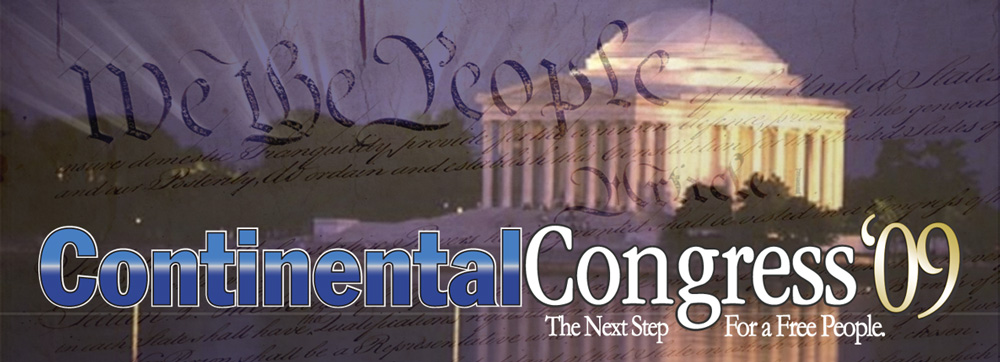CONSTITUTIONAL LAWS AND THE DECLARATION OF INDEPENDENCE
[1] Learn more about this Article: read the CONSTITUTION and the DECLARATION OF INDEPENDENCE. See the related CC 2009 video presentations: Michael Badnarik, President, Continental Congress 2009, Keynote Address – Charters of Freedom, November 12, 2009; and Robert Schulz, organizer of CC 2009, Keynote Address – The Constitution Does Not Defend Itself And Is Not A Menu.
WHEREAS, Laws inconsistent with the Letter or Spirit of The Declaration of Independence and The Constitution for the United States may be hastily and unadvisedly passed: Be it
ORDAINED, that {here shall be listed the members of the Joint Committee for Constitutional Governance} shall be constituted a Joint Committee called the Committee for Constitutional Governance, to review all bills about to be passed into law by the Congress. And for that purpose the Committee shall assemble themselves, from time to time, when the Congress shall be convened. The size and funding of the Committee shall be sufficient to allow the effective and efficient operation of the Committee, based on an annual review by and containing the recommendations of the General Accounting Office (GAO). All bills that have passed the Senate and House of Representatives, shall, before they become Laws, be presented to the Committee, which will identify and record in its minutes the provision(s) of the Constitution, if any, that authorize the parts of the bill, and prohibitions or restrictions that would be violated. If upon such consideration it should appear improper to said Committee or a majority of them, that the bill should become a law of the Nation, that the Committee return the bill, together with their objections thereto in writing, to the Senate or House of Representatives, in whichsoever the same shall have originated, who shall enter the objections set down by the Committee at large, in their Minutes and proceed to reconsider the bill. If a provision(s) in any bill is found to be repugnant to the Letter or Spirit of our Declaration of Independence, and/or our Constitution, the bill shall be returned to the Chamber where it originated, together with its objections. That Chamber shall publish the objections in its Minutes and proceed to an up or down roll call vote, accepting or rejecting the Committee’s report, prior to any future action. If the bill passes the roll call vote, accepting the Committee’s report the bill, itself, would then be voted on. If a majority of the members agree to pass the bill in spite of the Committee’s objections, the bill together with the objections shall then be sent to the other Chamber, where the process would then be repeated: up or down roll call vote on the Committee’s Report followed by the vote on the bill itself.
And in order to prevent any unnecessary delays,
BE IT FURTHER ORDAINED, each bill shall be returned by the Committee within ten days:
i. unless the Committee notifies each Chamber that it requires more time to complete its review, specifying the time required, but in no event shall the Committee take more than thirty days to return the bill, or
ii. unless the Congress, by their adjournment, renders a return of the bill within ten days impractical, in which case the bill will be returned on the first day of the meeting of the Congress, after the expiration of ten days.
